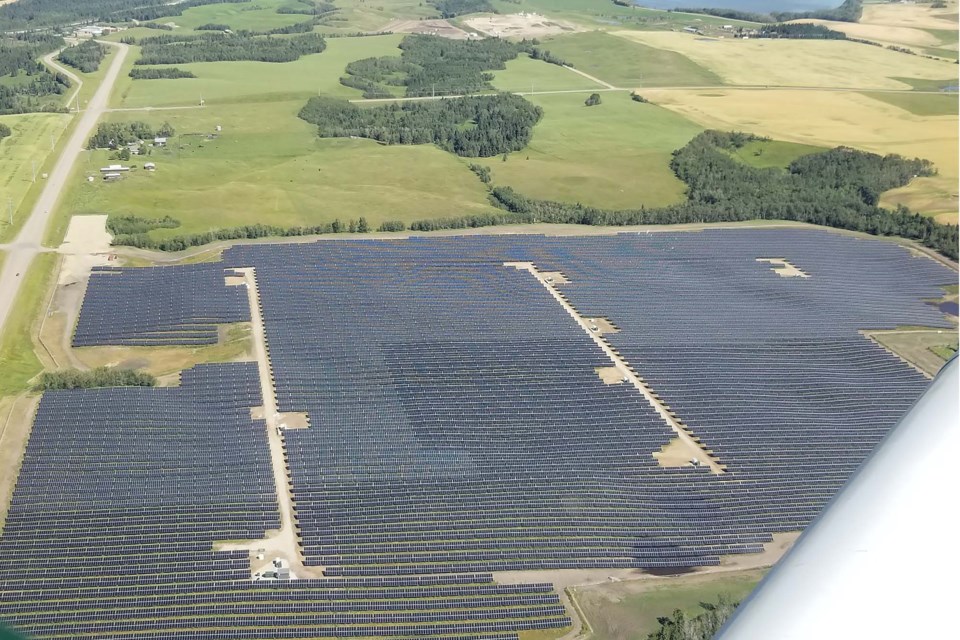Alberta’s annual solar showcase will return next month with its biggest audience yet.
The 2022 Solar Alberta Solar Show opens Feb. 7. The online conference features five days of free and paid talks on renewable power and net-zero homes.
About a thousand people had registered for the event as of Jan. 18, said Heather MacKenzie of Solar Alberta.
“We’re not starting for another three weeks almost, and we already have more registrations than any other year,” she said.
“It’s probably going to be our biggest show yet.”
MacKenzie said interest in renewable energy is still going strong in Alberta despite the pandemic, with many solar installers scrambling to find workers. Large utility-scale solar plants and new municipal grants have driven interest into new installs, as has a nearly 90-per-cent dip in the price of solar panels in the last 10 years. She expected even more interest in solar this year as cities such as Edmonton start clean energy improvement programs to let homeowners pay for energy retrofits through their taxes.
Panellists at this year’s event will cover subjects such as community generation, commercial solar, financing, and deep energy home retrofits. MacKenzie said this conference could be of particular interest to St. Albert as the community ramps up its Home Energy Retrofit Accelerator Program and considers construction of a large solar farm.
Equal under the sun
The opening address for this year’s conference also serves as the closing address for International Week at the University of Alberta. Sustainability and social impact consultant Alicia Richins will speak Feb. 7 about how solar power can help us meet the UN’s 17 sustainable development goals (No. 7 of which is dedicated to renewable power).
“Solar isn’t just about renewable energy and emissions reductions,” Richins said.
“It’s also connected to a whole bunch of other work we have to do in society to become sustainable.”
The UN notes that some 759 million people lacked access to electricity in 2019, with three-quarters of them living in sub-Saharan Africa.
Energy access is a matter of social and climate justice, Richins explained. Many of the same communities that lack clean, reliable electricity today were historically impacted by slavery, land theft, and other forms of exploitation. Fossil fuel extraction also often happens on Indigenous lands, imposing heavy health and environmental costs on those communities.
Solar power can help address these problems and advance Canada’s efforts at reconciliation with its own Indigenous peoples, Richins said. Solar is well suited for microgeneration in small or remote communities and doesn’t have the pollution effects of coal or oil. It also gives communities control over their own power, aligns with Indigenous environmental values, and brings jobs and economic development to excluded communities. Many developing nations also have plenty of sun.
“We have all the technology we need to solve climate change,” Richins said.
“It’s not a technology problem. It’s a social problem.”
The conference runs from Feb. 7 to 11. MacKenzie said guests can register at any time, but must do so before Jan. 31 to take part in the trade show. Paid sessions are $40, and some sessions will be published online later. Visit solaralberta.ca/events/the-solar-show for details.




